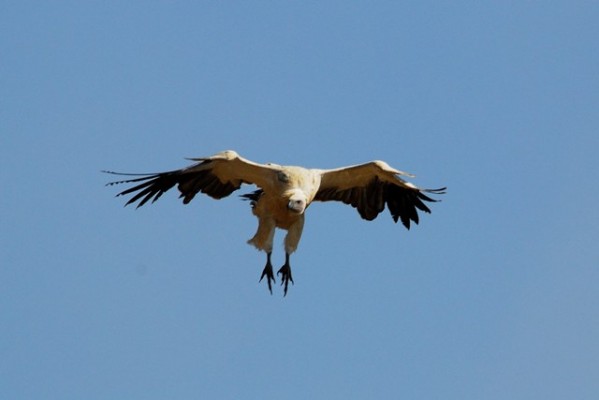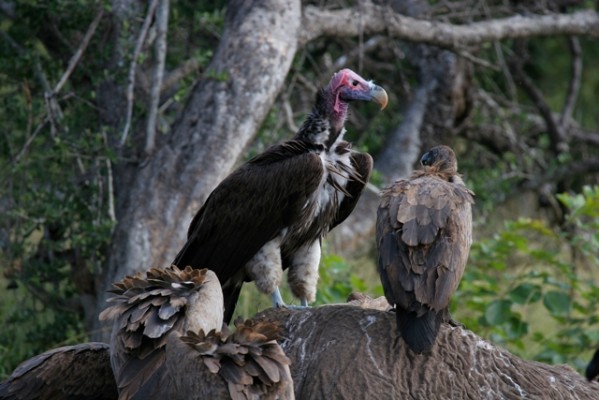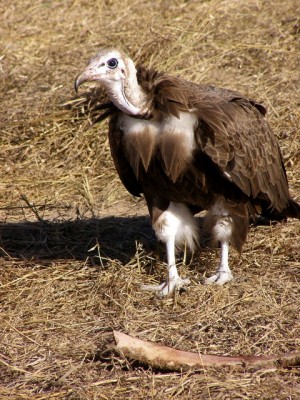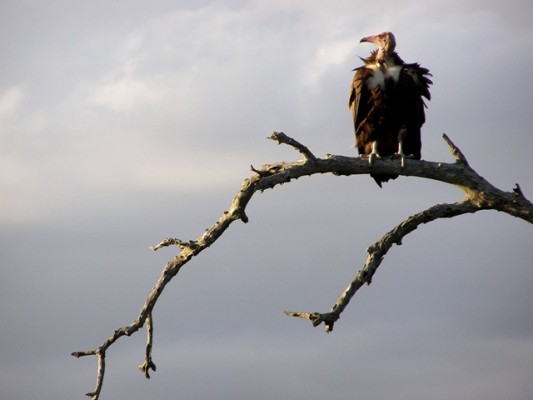
They are the winged scavengers synonymous with the African bushveld. We see the circles in the sky while they gracefully and effortlessly ride thermal air currents that alert us to the death of another unfortunate beast. They are essential to the balance of predator/prey relationships and they are unique creatures with amazing adaptations to their way of life. There are nine species that we can see in Southern Africa, and all are in trouble. Unfortunately, because of the way they are perceived and the way in which they behave, vultures are being annihilated in Southern Africa.

The belief in the potency of vulture body parts is one of the driving forces of the senseless killing. Vulture parts are prescribed by the proponents of traditional medicine in some local cultures for various ailments such as headaches and are thought to have various powers. By eating the brain of the vulture, a Sangoma is thought to increase their clairvoyant powers and increase their communication with the dead. A vulture’s foot is also thought to be a powerful talisman for luck and gambling. All of this contributes to the increase in the trade of vulture body parts.

Another massive contributor to their demise is the constant struggle stock farmers in Southern Africa have with local predators. Often certain predators are misidentified as the killers of stock (sheep, cattle goats etc.). This leads to carcasses being baited with extremely strong poisons, and instead of just poisoning the individual culprit, everything that comes into contact with that carcass dies. Sometimes there are up to 150 vultures lying dead at one site. Traditional healers have now begun to leave out poison carcasses for vultures themselves. Other practices that are also responsible for vulture deaths are:• Electrocution• Habitat destruction• Declining food availability• Direct persecution• Drowning in farm reservoirs• Disturbance at colonies• Illegal collection for traditional medicineThe above practices have decimated our vulture populations. As vultures pair up and breed together for life, if the partner dies, the other does not often find another mate. Effectively, killing one vulture kills future generations. All of our vultures are in trouble, with certain species of vultures have been affected more than others. The Cape Vulture (Gyps coprotheres) has been reduced to 2400 breeding pairs. They nest in cliff colonies, which are becoming increasingly further from feeding areas. This leaves them more vulnerable to poisoned carcasses than other species, as carcasses are easily placed close to the colonies and large numbers can be harvested for body parts. There are various research and rehabilitation initiatives taking place.

I commend all involved with vulture research and conservation, as it is an uphill battle with various facets that are unique and incredibly difficult to control. I hope that future generations will be as lucky as I have been to witness a vulture feeding frenzy at a carcass, and marvel at these unique creatures.
Some interesting vulture facts:
• Vultures are incredibly diverse with over 20 species found across the world.• Vultures are found on every continent except Australia and Antarctica.• Vultures only lay one egg every year or so.• A vulture can eat up to 1 kilogram (about 2 pounds) in a single meal (that’s over 10% of their body weight).• In Asia, some vultures are almost extinct and have declined by 99% in just 15 years.• Vultures have huge ranges with a single individual using all of Kenya, northern Tanzania, and even going into Ethiopia and Sudan.• All vultures eat carrion or dead animals for at least part of their diet.• Vultures consume up to 70% of all the available meat in East Africa.• In ancient Egypt, vultures were used as a symbol of femininity.• Some cultures use vultures to dispose of human corpses, leaving bodies out on pillars to be fed upon by the vultures.• In Germany, police have trained turkey vultures to help them finding missing people.• Because many species of vultures are social, vultures are highly affected by poisoning and environmental contaminants and over 100 birds can be killed at just one poisoned carcass.• Vulture restaurants are feeding sites where carcasses can be left out for vultures. These restaurants help to ensure that vultures have enough food and can help them to avoid contaminated carcasses. In South Africa these are even visited by tourists who enjoy watching the vultures feed.• Vultures are the ultimate recyclers – able to strip a carcass in just a few hours, they keep our environment clean and disease free.• Turkey vultures have the best sense of smell of nearly any animal, but African vultures rely solely on eyesight to find carrion.Vultures are often spotted in the Kruger National Park along with 500 other species of bird. Do you know what kind of birds can be seen in the Kruger?

